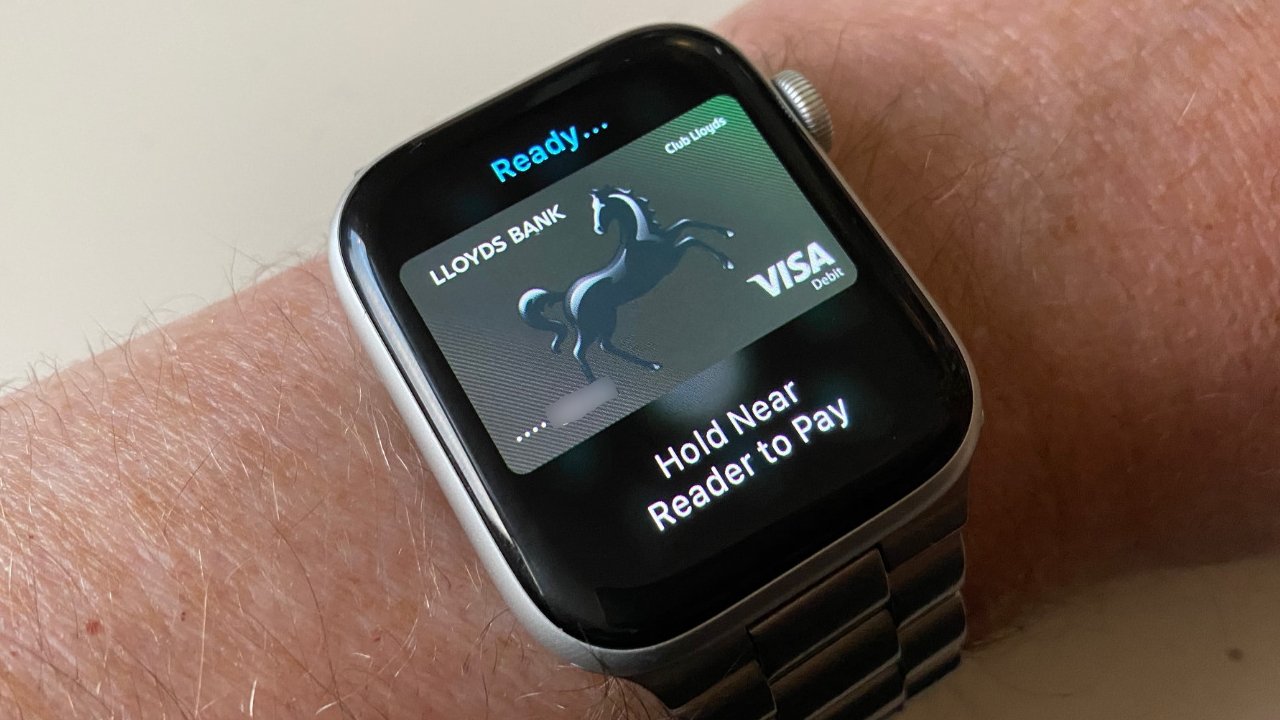US watchdog wants Apple Pay regulated like a bank
The US Consumer Financial Protection Bureau has proposed that digital wallets such as Apple Pay should be regulated, and currently lack safeguards.

Apple Pay on an Apple Watch
The Consumer Financial Protection Bureau (CFPB) has been investigating Big Tech's digital wallets, including a "very careful look" at services such as Apple Pay Later. It's now proposing that 17 firms from Apple and Google, to PayPal and Block's CashApp, should be subject to supervision.
"Today's rule would crack down on one avenue for regulatory arbitrage," CFPB director Rohit Chopra told Reuters, "by ensuring large technology firms and other nonbank payments companies are subjected to appropriate oversight."
It's not clear precisely what regulatory framework the CFPB wants to install. However, Reuters reports that the regulator is focused on the privacy of financial transactions in particular.
Chopra says that its proposal for regulation would apply to companies handling in excess of five million transactions a year. It's not known how many transactions Apple Pay sees annually, but for 2022, the value of payments it processed was $6 trillion.
The CFPB is now accepting comments over its proposal, and this period is planned to conclude in early 2024.
Separately, this move by the US authorities to add monitoring and safeguards to digital wallets a similar plan in Australia. Apple has already objected to that expansion of regulation.,
"Apple believes the proposed expansion... will increase regulatory burden without aa net public benefit, give rise to... regulatory error," Apple said in October 2023, "and stifle the dynamic innovation that has characterised Australia's payment system over recent years."
Read on AppleInsider

Comments
To that end, this is more about ensuring that Google, CashApp, Apple, etc. are doing everything possible to protect the consumers' interests and preventing consumers from being subjected to unfair business practices. For example, Google could decide tomorrow that they will start charging a small fee to withdraw one's own cash balance without providing the opportunity to withdraw and switch providers prior to such a policy change. Or they could start charging a fee to initiate a person-to-person cash transaction from an in-app cash balance. Or they could be putting your saved funds into risky investments that are underinsured, risking your balance without your consent. In the past, when business have done shady things like these, the CFPB has stepped in and forced the bad actors to return the funds to the consumer.
As a hardcore fanboy, I trust Apple more than anyone. But, due to the Equal Protection Clause of the 14th amendment, the government can't pick and choose which companies they think are bad and only regulate on those. They have to regulate the whole Market or not at all. Right now, there are very few rules for these companies to follow. And since we really can't trust Google, Cash, etc.; we need proactive consumer protections to prevent them from finding new ways to screw over their users in the future, and penalize them when they do it anyway. As Apple is also operating in this Market, they must be subjected to those same regulations, even though they are likely already operating on the level. So at the end of the day, any new regulation would likely not be impactful to Apple, thus there is not much reason to recoil at this.
Any regulations on credit card handling would likely be to ensure consumers do not face price increases due to potentially exorbitant processing fees being imposed by Google Pay or ApplePay. Otherwise, regulations would likely be focused on liquid cash services like ApplePay Cash and the savings account feature; and on any of the loan-based 'Pay Later' services.